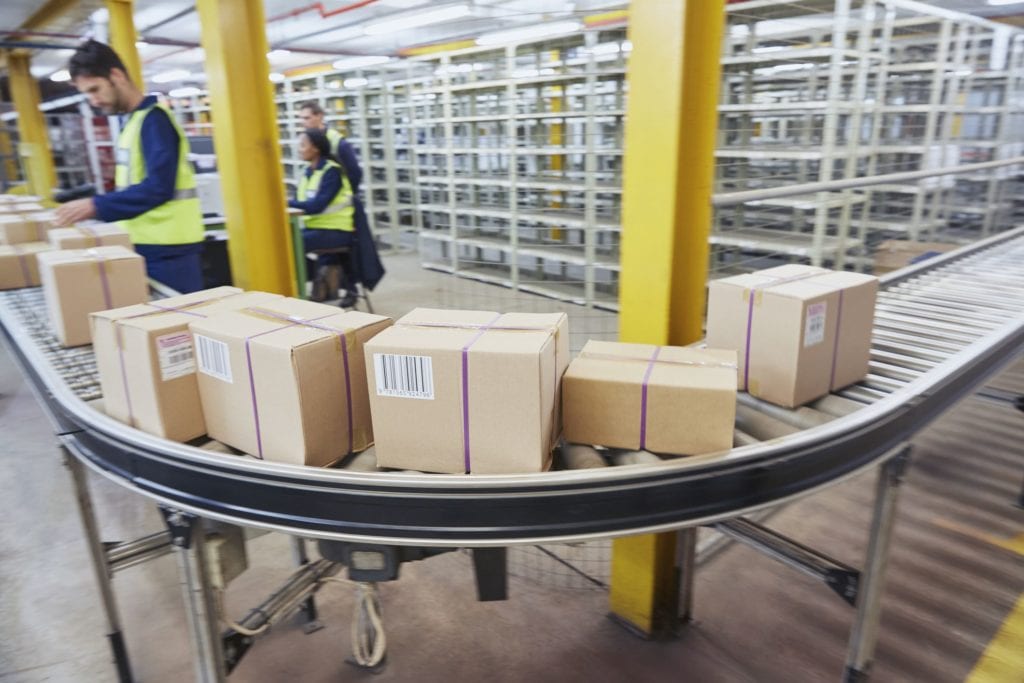Distributor companies are the middlemen that buy products from manufacturers and then sell them to retailers. As more retail businesses continue to emerge, the demand for distribution companies is increasing. Therefore, the distribution industry offers several profitable opportunities for entrepreneurs.
In order to take advantage of these opportunities, you need to understand how to start up a distribution business. This can be difficult since this type of business differs from others. Fortunately, you can learn how to start a distributor company from scratch right here.
Choose A Distribution Business Model

To begin starting your own distributor company from scratch, choose a distribution business model. Distributors typically operate using one of two business models. The first option you have is to buy products directly from manufacturers or wholesalers.
After purchasing the products, you sell them to retail consumers yourself. The second option entails buying products from manufacturers and then selling them to other distributors. Determine which option appears most appealing to you and your business goals. Then, you can successfully start a distributor company from scratch.
Decide On Products To Distribute

After you choose a business model, decide on products to start a distributor company in a specific industry. You can either sell one specific item or offer a variety of products. According to FrankDoolittle.com, a manufacturer of union-made products, “t-shirts, stickers, lapel pins, sweatshirts, caps, and calendars are among top sellers.”
Either way, you should choose your products based on how easy they are to acquire or the market potential. One of the biggest reasons that new businesses fail is because they fail to understand their market audience. If you aren’t confident about your audience, consider hiring a market research firm to truly hone in on those demographics.
Contact manufacturers in your area and inquire about the products they have to offer. Ask about their ability to continue producing the products you are interested in as well. That way, you can avoid choosing a product or a group of products that you will have trouble obtaining to sell. Follow this advice to start a distributor company from scratch successfully.
Acquire Funding For Startup Costs

If you are starting a distribution business, you will need to acquire funding for the startup costs as well. In order to obtain the right amount of funding, you need to identify your startup expenses.
For instance, you will likely need to acquire a business phone to communicate with manufacturers and customers effectively. Consider purchasing a work computer or laptop to use to create a business website for yourself as well.
Distributors also need warehouses to store their products in, which results in monthly rent bills that you need to factor in. Additionally, account for any office fees if you plan to rent a professional location to work in.
After you create a list of the expenses you will need to pay for, reach out to lending institutions to receive the financing you need. This step is crucial to starting a distributor company from scratch.
You also need to consider your hiring expenses. Chances are you need a team to help you acquire business, and you’ll need to give particular attention to your salespeople.
Your sales team will help get you those clients necessary to grow your business, and as some of the first employees at the company, they will help set the tone for early success and foundation for company culture. Start by turning to your own network and getting referrals. It may also help to attend trade shows in the industry and exchange cards with others.
Find Reliable Suppliers

Next, find reliable suppliers to start a distributor company successfully. The main difference between a distributor and supplier is that a supplier (also called a wholesaler) is responsible for supplying goods to the consumer, while a distributor is responsible for distributing those goods to the businesses that sell to consumers.
This step is crucial in starting a distribution business because the market is competitive. You need to sell high-quality products in order to compete effectively and dominate the distribution industry.
To ensure high-quality goods, reach out to suppliers that have maintained good reputations for years. Ask them if they sell the products you intend to sell. Narrow down your options by asking about their delivery schedules and costs as well.
By assessing each supplier based on these terms, you can choose the best reliable manufacturer and start your distributor company. Be sure to research every supplier before you take action. Ideally, you’ll work with a supplier that someone else referred to you, but this isn’t always the case.
Obtain Necessary Licensing

Finally, you need to obtain the necessary licensing to legally start a distribution business from scratch. The most basic form of licensing that you need to launch your startup is an occupation business license, which is also commonly referred to as a business tax registration. Some states and industries also require distributors to obtain seller’s permits to operate legally. You will need to obtain a sales tax license and a state tax ID as well.
These licenses are necessary to charge taxes to retail buyers. Review the necessary licensing you need so you can obtain it and start your distributor company legally.
Starting a distributor company from scratch requires several steps. Firstly, you need to choose a distribution business model that best meets your needs. After selecting a business model, decide on the products that you want to distribute.
Create a list of your startup expenses and reach out to lending institutions to acquire funding. You also need to find a reliable supplier that sells the products you want to offer customers. Lastly, obtain necessary licensing so you can abide by the law when launching your new company. Follow these steps to successfully start a distributor business from scratch.
If you still feel lost in the loop, reach out to potential mentors who can help guide through the process. Talk to your mentor about sales strategies, technology, funding, and other areas critical to success.
 Imagup General Magazine 2024
Imagup General Magazine 2024



